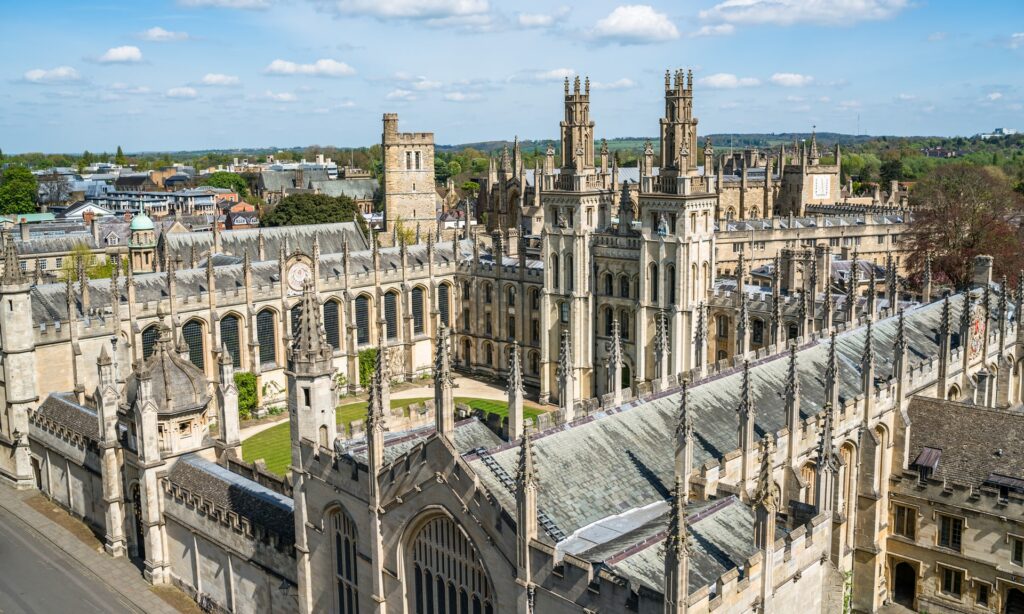All Souls, which received substantial payment in 1710 from slave owner, to fund one student a year from Caribbean nations.

Oxford’s All Souls College is attempting to redress the bitter legacy of slavery that for hundreds of years has helped it maintain its position as one of Britain’s richest and most prestigious academic institutions.
Following long internal debate, the college’s fellows have agreed to launch an annual scholarship scheme, funding graduates from Caribbean countries to study at Oxford, alongside a five-year grant for a higher education college in Barbados.
All Souls is understood to be considering further action to commemorate the suffering of slaves who unwillingly contributed to the college’s success.
The college’s tentative steps recognise the enormous financial benefit All Souls was gifted by former fellow Christopher Codrington, a slave owner and sugar plantation magnate who in 1710 bequeathed part of his fortune for the college to establish the magnificent library that bears his name.
Codrington’s will left £10,000 – a sum equivalent to tens of millions of pounds today – to All Souls, which commissioned the architect Nicholas Hawksmoor to design the library that opened in 1751 and has been in use ever since.
Codrington also used his wealth to found Codrington College in St John, Barbados, a theological college affiliated to the University of the West Indies that All Souls now plans to gift £100,000 over five years.
“All Souls is pleased to be funding scholarships for graduate students from the Caribbean, and to support Codrington College in Barbados in this way,” a spokesperson for All Souls said.
The moves are the latest efforts within Oxford to address historical injustices, after a burst of publicity when students protested the continued commemoration of Cecil Rhodes, the Victorian imperialist who endowed the university with a huge fortune derived from colonial exploitation in southern Africa.
The controversy engulfed Oriel College, which displays a statue of its former student Rhodes, and culminated in a strenuous public debate inside and outside the college over the sculpture’s fate.
Shreya Lakhani of Common Ground, an Oxford student group highlighting the university’s imperial legacy, said All Souls’ actions were “small steps in the right direction” but said the college could do more given its wealth and status.
“We don’t think the steps All Souls has taken are enough, although obviously these are good steps in themselves,” Lakhani said. “Other colleges should look at this and take note, and it might act as a nudge for other people.”
Common Ground argues that All Souls should change the library’s name and relocate Codrington’s marble statue and portrait to avoid “glorifying” him – although the college says it has no plans to do so.
“The people we celebrate are reflections of our past but also expressions of our present day values,” Lakhani said.
In June last year All Souls attracted student protests over Codrington’s legacy. In one case a student bound in chains stood outside the college entrance, with “All Slaves College” painted on his chest.
All Souls sits at the apex of Oxford’s academic elite, a small but wealthy college that admits few postgraduates – freeing its fellows from onerous teaching or research obligations. Its “distinguished fellows” include the former Conservative cabinet ministers John Redwood and William Waldegrave.
Despite its size All Souls has one of the richest endowments in Oxford, approaching £300m, according to some estimates, although without students its income is limited. The college was one of several Oxbridge institutions that appeared in the Paradise Papers revelations, investing funds offshore in the Cayman Islands.
The new graduate scholarships will pay for the postgraduate tuition fees and living expenses of one student a year who is a national of a Caribbean country, although it will not include a fellowship at All Souls itself.




